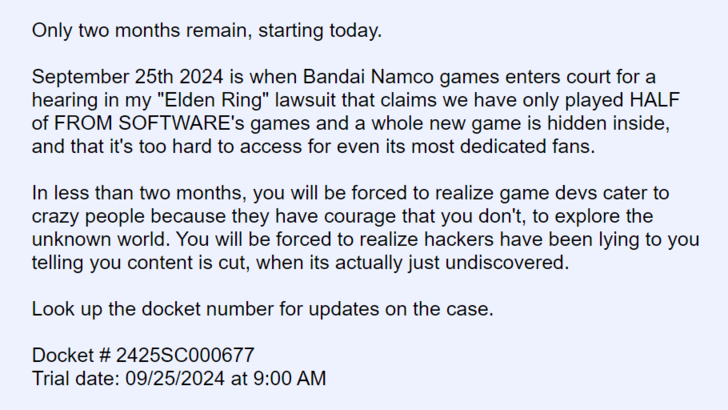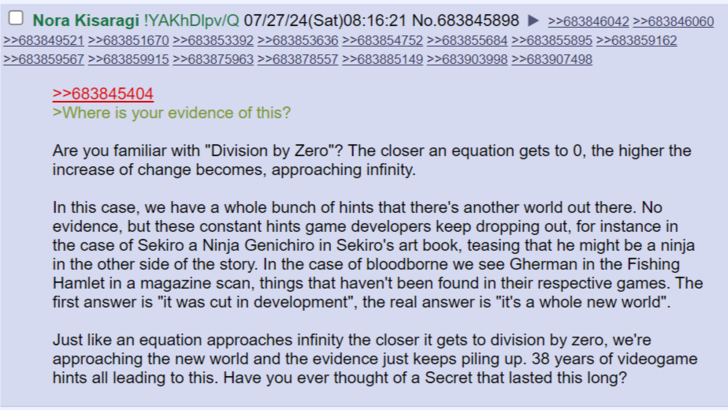
A disgruntled Elden Ring player has initiated legal proceedings against Bandai Namco and FromSoftware, alleging deceptive marketing practices regarding inaccessible game content. Continue reading for details about the lawsuit's validity and the plaintiff's underlying motivations.
Elden Ring Player Pursues Legal Action Through Small Claims Court
'Skill Barrier' Allegedly Gates Content

A player identifying as Nora Kisaragi on 4Chan announced plans to sue Bandai Namco, claiming FromSoftware intentionally obscures substantial gameplay content behind excessive difficulty barriers. The lawsuit alleges Elden Ring and other Soulsborne titles contain "an entire additional game layer" deliberately made inaccessible to most players.

The plaintiff references Shadow of the Erdtree's notorious difficulty spike as supporting evidence. While acknowledging datamining discoveries, they controversially interpret these findings not as cut content but as intentionally concealed material.
The complainant admits lacking direct evidence, relying instead on inferred developer hints from Sekiro and Bloodborne design philosophies. Their core argument asserts consumers unknowingly purchase unavailable content due to artificial difficulty gates.

The gaming community widely dismissed these claims, noting dataminers would have uncovered any substantially hidden content years earlier. Industry experts explain unused assets commonly remain in game files due to development constraints rather than intentional concealment.
Legal Feasibility Assessment

Massachusetts small claims procedures allow individuals to file suits without legal representation. However, judges ultimately determine case validity based on evidentiary standards.
The plaintiff may attempt invoking consumer protection statutes prohibiting deceptive trade practices. Still, substantiating claims of hidden content dimensions presents immense challenges. Without tangible evidence demonstrating deliberate consumer deception causing measurable harm, the case appears destined for dismissal.
Notably, even successful claims would yield minimal damages under small claims limits. However, the plaintiff emphasizes their primary goal isn't financial compensation but forcing an official developer statement regarding alleged hidden content.






 LATEST ARTICLES
LATEST ARTICLES 












